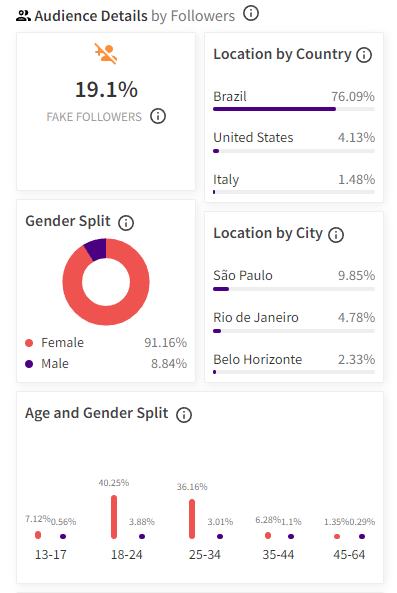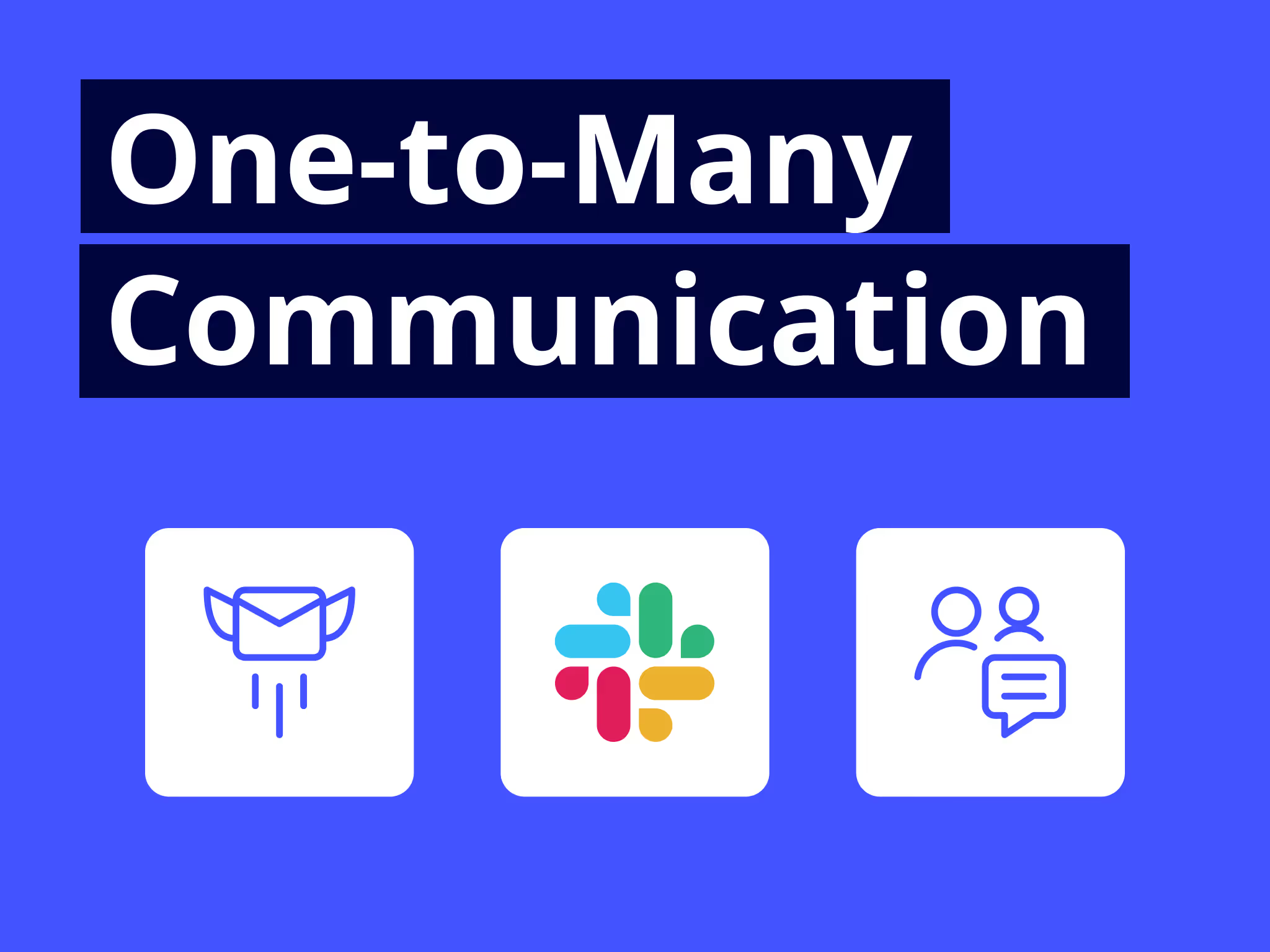Customers are the lifeblood of every business, so it's no surprise that brands prioritize acquiring new ones every chance they get.
But the probability of selling to new customers is only between 5% and 20%, compared to existing customers at 60% to 70%. Add the widespread use of social media to the mix that provides users with information about a brand, and customers now have a new channel influencing purchase decisions.
Clearly, businesses have to put in more effort to maintain relationships with their customers than ever. This is important not just to make sales but also to attract new customers through referrals.
Strategic relationship marketing is key to building authentic relationships with existing customers without the typical costs of acquiring new ones. In this article, we'll cover the different relationship marketing strategies and how to use them.
What is relationship marketing?
Relationship marketing focuses on long-term customer relationships to develop a customer's emotional connection to a brand for the long haul. Rather than one-time sales transactions, relationship marketing helps you create and nurture long-term customers.
How does this happen?
Relationship marketing focuses heavily on the customer experience. When a customer buys from you, your goal is to make them become loyal patrons of your brand. You do this by taking a personalized approach to client retention and connecting with them naturally and genuinely.
For example, you can:
- Provide stellar customer service
- Interact with your customers on social media
- Ask for feedback and make them feel their opinions matter
- Create rewarding incentives or loyalty programs
When customers feel satisfied with your brand, they will likely come back again for their business needs. So you must nurture your customer relationships to build trust and loyalty.
Benefits of relationship marketing
When properly implemented, there are many benefits to gain from relationship marketing. Some of the rewards include:
- Higher customer lifetime value: With relationship marketing, you get customers who make repeat purchases, thereby increasing their CLV. These customers, in turn, become brand advocates, recommending your products and services to their friends, families, and other business associates.
- Reduced marketing and advertising spend: Relationship marketing causes customers to market for you. A customer's word-of-mouth can drive sales, reducing the money you spend on marketing and advertising.
- Increase in sales: As you build strong relationships with your existing customers, they return to make more purchases from you, And you can continue to see an increase in your sales figures.
- Reduced customer churn: When you gain the trust of your customers, they'll be less likely to waver and switch to a competitor. Keeping them happy and satisfied with your brand avoids churn and improves customer retention rates.
- Boosts brand image: Relationship marketing helps with the branding of your company. By creating loyal customers who persuade others to buy from you, you boost your brand image and stand out from the competition.
8 types of relationship marketing strategies
Relationship marketing has a mix of tactics you can use to increase customer satisfaction and loyalty long-term. Here are eight different types.
1. Influencer marketing
Influencer marketing involves collaborating with influential creators to promote your products and services. Your goal is identifying and reaching out to authentic influencers whose subject matter and personality resonate with your brand.
Collaborate with these influencers to tap into their audience. Collaboration types could include:
- Gifting (sending free products in exchange for a post)
- Brand ambassador programs (long-term relationships)
- Sponsored posts (paying per post)
- ... and more
The best (and most scalable) way to find influencers is using a discovery tool like Modash. It lets you search & filter every creator on Earth (with 1k+ followers) to find your perfect partners. Modash also has contact emails, audience demographic data, and performance data (like engagement rate). Here's a preview of some of the data available per creator:

Search and analyze influencers with Modash
Please use a real email address
Please make sure that your email address is valid
Don't forget to measure influencer marketing results while you're at it. To track your ROI, monitor metrics like:
- Revenue and conversions
- Page views and impressions
- Number of subscribers and social media followers
- Lead generation and engagement on social media posts
2. Customer advocacy
Customer advocacy is where customers promote your business on social media using their voice and natural tone. They may do this by resharing your published content or giving testimonials about your products and services.
To leverage customer advocacy, you must create an experience that appeals to potential buyers. Think: selling high-quality products and services and providing fantastic customer service.
Make your customers feel involved and then actively ask them to share their opinions about your brand on social media. We highly recommend creating customer advocacy programs to reward the customers who provide word-of-mouth advertising on your behalf.
3. Community groups
A community is a group of customers who support and promote your brand wherever possible. They may be spread across multiple platforms—your website, forums, or social media.
Consider bringing them together through in-person or online events to connect, share, and discuss new marketing ideas. This allows you to promote long-term engagement and build trusty relationships as part of your customer retention strategies.
4. Customer feedback
Customer feedback is key to gaining valuable insight into your mistakes and how to improve. You can ask customers what they see in your brand or what they like about your product.
Solicit customer feedback through polls, surveys, and phone calls. Take their feedback into consideration and quote them on your websites and social media platforms. This gives them the impression that their opinions are valued and they assist in creating better products and services.
5. Link building
Link building is a marketing strategy for getting links from other websites to your website. It's one of the most powerful ways to rank higher in search engines. Link building takes a lot of work. And when done the wrong way, it can backfire and result in a ban from google.
The best way to leverage link building is by creating high-quality, fun, original content people want to share. Then apply proven outreach tips to get your clients to share your content with those interested in it.
Talk to them personally and offer to let them try your product for free to help convince them. This increases your chances of actually getting a link.
6. Affiliate marketing
Affiliate marketing refers to building partnerships with clients who have established blogs, companies or businesses. The goal is to grow your revenue by giving them commissions, special offers, discounts, or sales when a lead buys your product because they promote your brand.
Affiliate marketing and influencer marketing intersect. You can get influencers to promote your brand on their social networks in exchange for a commission on sales, signups, or leads. This is known as influencer affiliate marketing.
Affiliate marketing depends on developing close relationships with your clients to boost brand awareness. It's crucial to keep this in mind as you leverage this strategy.
Read more: How To Find Affiliates For Your Brand.
7. Partner marketing
Partner marketing is one of the strongest relationship marketing strategies between a brand and its customers.
It's a strategic collaboration between two or more businesses that help each other reach their business goals. It helps build brand awareness, increase the customer base, and expand marketing reach.
You can launch a partner program with your network of clients where you set your ad campaigns, recruit partners, conduct all communication, and structure payouts with partners. You can also use email marketing strategies to reach out to potential partners and build relationships.
8. Referral marketing
Referral marketing is getting your customers to tell their family and friends about you. It's also known as word-of-mouth marketing, and it happens organically. Referral marketing is so powerful because humans naturally like to share their experiences.
Plus, according to a study by the AMA journal of marketing, referred customers are loyal and bring in high-profit margins, as much as 25%. So it's essential to leverage the power of referral marketing as a relationship marketing strategy.
You can do this by asking satisfied customers for referrals and launching a unique loyalty program that rewards customers for their constant patronage.
6 Relationship marketing examples from top brands
Some well-known brands have since adopted relationship marketing to maintain strong relationships, grow their customer base, and increase revenue. Here are five examples:
1. Lego Ideas
Lego has a community-based web platform known as Lego Ideas. Community members on the platform can share visual ideas, discuss graphic content for new items, and proudly showcase their Lego creations. The Lego members can then vote and comment on specific concepts.
By nurturing this community, Lego allows its members' creativity to flourish. Lego also provides incentives and promotes long-term engagement by showcasing specific ideas and selecting a few to launch as branded products.
2. Dropbox

Like many startups, file hosting cloud service, Dropbox, struggled to grow its user base after it was founded in 2007. It focused on search engine marketing then, but it still needs to solve their growth bottleneck.
They eventually borrowed a strategy from Paypal and set up a referral program. And in 15 months, they grew to over 4,000,000 users. Today, they are a multi-billion dollar startup with over 700 million registered users.
3. Starbucks
Starbucks is a brand that is excellent at building customer relationships. They regularly encourage their customers to give feedback on various topics, including fresh product and service concepts.
The information from the feedback is then used to strengthen the customer relationship. They also share user-generated content frequently on their website and social media platforms, like videos and images of customers drinking their products on Instagram or Twitter.
4. Zapier
We live in an era where API integrations have become part and parcel of the digital world. And no one can provide an all-in-one solution to satisfy every customer. But companies like Zapier leverage partner marketing by collaborating with other software companies to provide API integrations based on the customer's needs. This way, customers don't have to switch to other platforms to get a solution to their problems.
5. Cisco
Cisco is an IT networking company that launched a customer advocacy program when they became aware of the many advocates they had. The Cisco Champions Program was a community initiative where the advocates talked about the Cisco brand across their networks and social media handles.
In return, Cisco rewarded loyal customers with peer networking, exclusive event invitations, and early access to new products. As a result, the Cisco Champions program generated around 55,000 Cisco-related tweets, 8,000 social media mentions, and over 44,000 hits on their blog.
6. Delta

Delta, one of the oldest operating airlines in the United States, is well known for its customer loyalty program. It runs the Skymiles Program, where customers earn miles based on the amount of money they spend with the company. These miles are subsequently used to redeem future travel purchases like seat upgrades, airfares, a Delta vacation package, etc.
Through this relationship marketing strategy, Delta has built a loyal customer base that frequently chooses them over its competitors. As a result, they were recently ranked number 1 in customer satisfaction across North American airlines.
Challenges in relationship marketing
While relationship marketing benefits every business, it comes with challenges. Some of them include the following:
- Adopting omnichannel methods to reach customers across all platforms: The challenge lies in monitoring each channel, so customers are not kept waiting. It's critical to ensure you track and monitor all channels to see what's working.
- Quick customer response: Meeting customer response can be tricky, especially when you have a high volume of inquiries
- Personalizing content: Every customer wants a personalized interaction with a brand. But it can be challenging to track all customers' details and preferences across multiple channels. Innovative targeting tools and email marketing can help.
- Regular catch-ups: Getting all levels of your company to adopt a relationship marketing approach can be challenging. You need regular catch-ups to monitor the adoption process.
- Introducing complex software tools for implementing relationship marketing strategies: Your employees need time to get used to new tools and figure out how they work. It helps if the software comes with onboarding support and training for new users.
Relationship marketing strategies in conclusion
Having a solid relationship marketing strategy is one of the best ways of making your business more successful. It helps you build and maintain connections with your customers, ensuring they remain loyal to your brand.
While you can adopt any of these strategies to boost your relationship marketing efforts, you can also take a shortcut with Modash to simplify influencer marketing. Use the software to find key influencers in your niche and build strong relationships that lead to better results.







